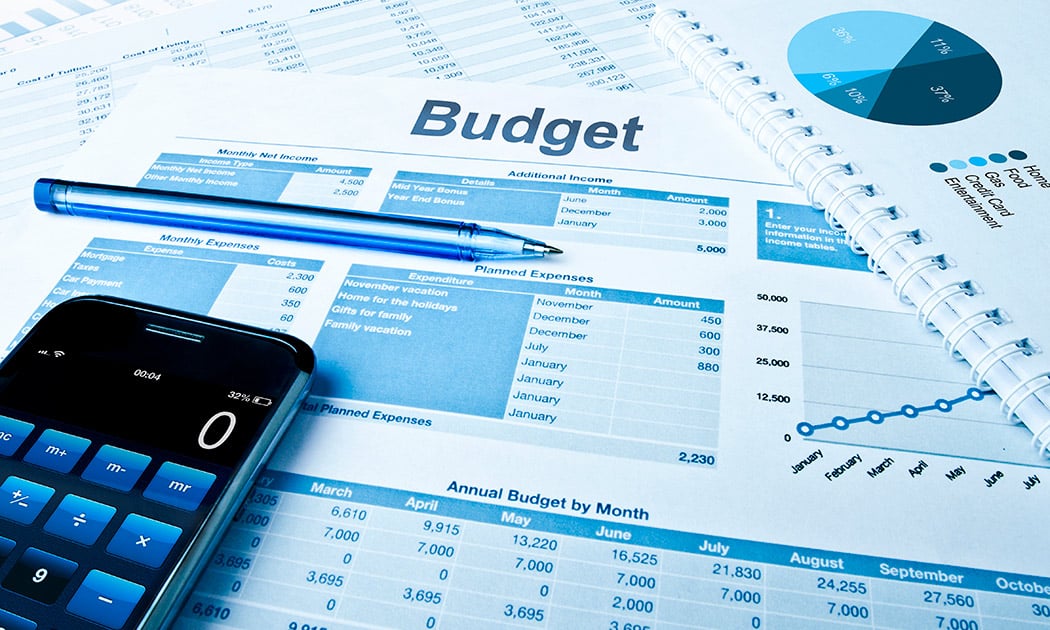The Payroll Blog
News, tips, and advice for small business owners
- Home
- Resources
- Payroll Blog
- Planning for Seasonal Business Downswings
Planning for Seasonal Business Downswings
Running a seasonal business has its upsides: for some small business owners, it offers a revenue stream that comes with built-in flexibility and work-life balance as you can plan for and take advantage of cyclical business shifts.

But, as with all things, there can be drawbacks to seasonal small business, not least of which are: getting the maximum return out of the busy season, and ramping down costs during the off-season.
While creating and sustaining customer affinity, even during the off-season, and maintaining relationships with seasonal employees are two big considerations for seasonal small business owners, an additional aspect of seasonal business that can make or break your chances for success is properly planning out your projected sales vs. your ongoing overhead expenses so that you can have a healthy cash flow, even off-season.
If you're moving out of peak busy season for your small business, here are four things you'll want to do:
Data download
You'll want to do an analysis of your past few business cycles to project how long your off-season will last (pay attention to any fluctuations or unexpected events that may have thrown off your projections in the past). In addition to mapping out how long you may need to sustain decreased revenue, understanding your small business' unique seasonal cycles can help you more accurately plan for the required number of employees on payroll relative to demand in a given period, and also give you insight into how to structure promotions, campaigns, and discounts based on the inventory remaining as peak season nears its end.
Whether it's your first selling season or your 50th, you may want to consult with a financial advisor or accountant to vet your projections vs. projected expenses.
Tip: For items that are always on your best-seller list, depending on your storage abilities, it may make sense to keep them for next season rather than holding a fire-sale. On the other hand, if you have a particularly on-trend seasonal item, you might want to feature a special promotion to clear out inventory for next season's hot ticket item.
Plan out required expenses for the low season
While some seasonal business expenses will ebb and flow depending on the time of year, such as payroll and inventory, some overhead costs will be fixed year-round. These fixed and ongoing costs include things like: rent for your office or commercial space, basic utilities (think phone, internet, etc.), and business insurance. As part of your data analysis, plan to complete a review of off-season expenses based on prior sales cycles, and ensure you have enough cash available to cover them.
Determine what expenses you can "turn off."
On the other side of mapping out year-round operating costs and ensuring that you have enough cash to sustain them during the off-season, you want to understand what costs are seasonal and ensure you plan to turn them off as busy season winds down. Consider things like recurring supply and inventory orders or marketing and promotions. You'll want to contact your vendors to stop recurring orders and ensure that any promotional contracts are designed for your busy season only. You'll want to set a calendar reminder to reinstate these services as busy season approaches.
Cash is king
Once you've mapped out your expected off-season expenses and cut non-essentials, you'll want to determine if you have the funds to cover your baseline operating expenses. If you don't have the funds for off-season expenses readily available, there are a couple of options you can look into to stay afloat until the busy season picks back up:
-
- Outsource assets. While you will likely want to maintain your physical office location or brick and mortar space so that customers can find you come the busy season, you may not need it during the off-season. If you have unused parking, office, or retail space, or specialized equipment that will go unused during the downtime, you might explore renting to another local business to open up an additional revenue stream that you can tap into to cover your overhead expenses.
- Research funding options. The business funding market continues to expand, with many alternative providers specializing in ways to help small businesses leverage their assets to obtain access to cash when needed. You'll want to look at your small business' financial history and your specific needs to determine which funding sources might be a fit. Keep in mind that you will more than likely want to limit any funding or loans to cover your base operating expenses in the off-season—when sales are decreased and your cash flow has dried up, you won't want to take a risk on additional loan capital for things like improvements or expansion.
Bottom Line
Running a small business is a roller coaster ride—and all the more so when yours is a seasonal business. While it is natural to focus on hitting the highest highs during busy season to take advantage of peak sales opportunities, it is equally as important that you properly plan for the off-season, whether that involves keeping open lines of communication with seasonal employees, cutting non-essential costs, or ensuring there is a cash flow to sustain ongoing operational expenses.
Do you run a seasonal small business? What tips have helped you plan for the off-season? Tweet us @SurePayroll with your advice.
This website contains articles posted for informational and educational value. SurePayroll is not responsible for information contained within any of these materials. Any opinions expressed within materials are not necessarily the opinion of, or supported by, SurePayroll. The information in these materials should not be considered legal or accounting advice, and it should not substitute for legal, accounting, and other professional advice where the facts and circumstances warrant. If you require legal or accounting advice or need other professional assistance, you should always consult your licensed attorney, accountant or other tax professional to discuss your particular facts, circumstances and business needs.
Related Blog Posts
View Our Plans and Pricing
Small Business Is Our Business.
This website contains articles posted for informational and educational value. SurePayroll is not responsible for information contained within any of these materials. Any opinions expressed within materials are not necessarily the opinion of, or supported by, SurePayroll. The information in these materials should not be considered legal or accounting advice, and it should not substitute for legal, accounting, and other professional advice where the facts and circumstances warrant. If you require legal or accounting advice or need other professional assistance, you should always consult your licensed attorney, accountant or other tax professional to discuss your particular facts, circumstances and business needs.



